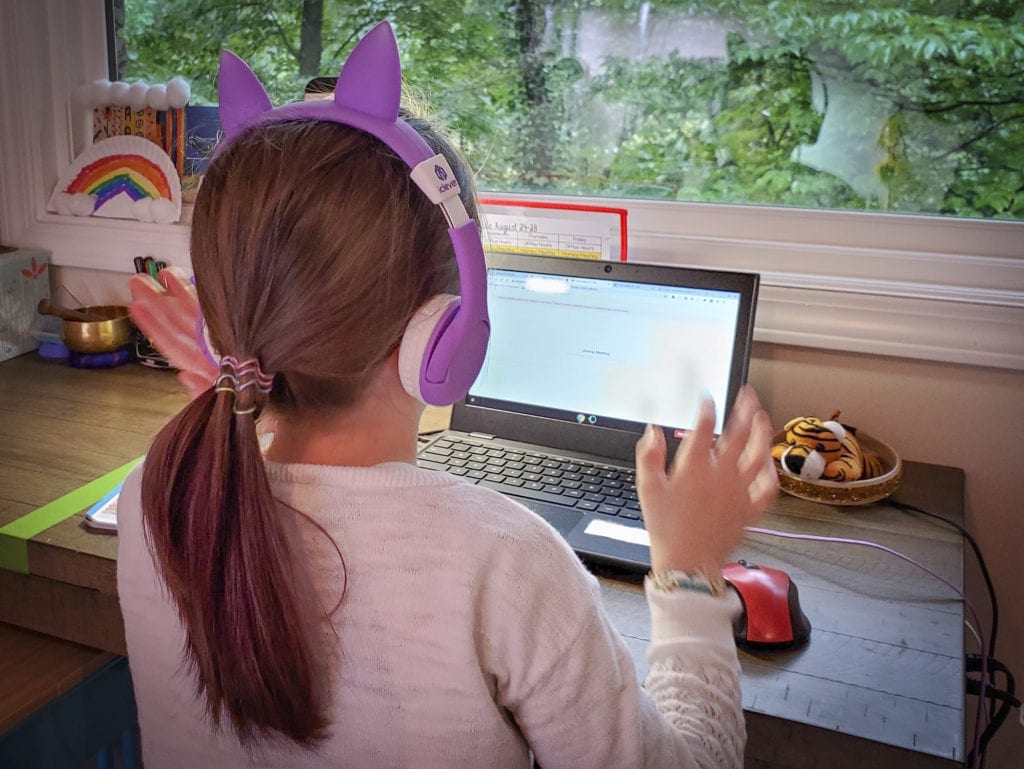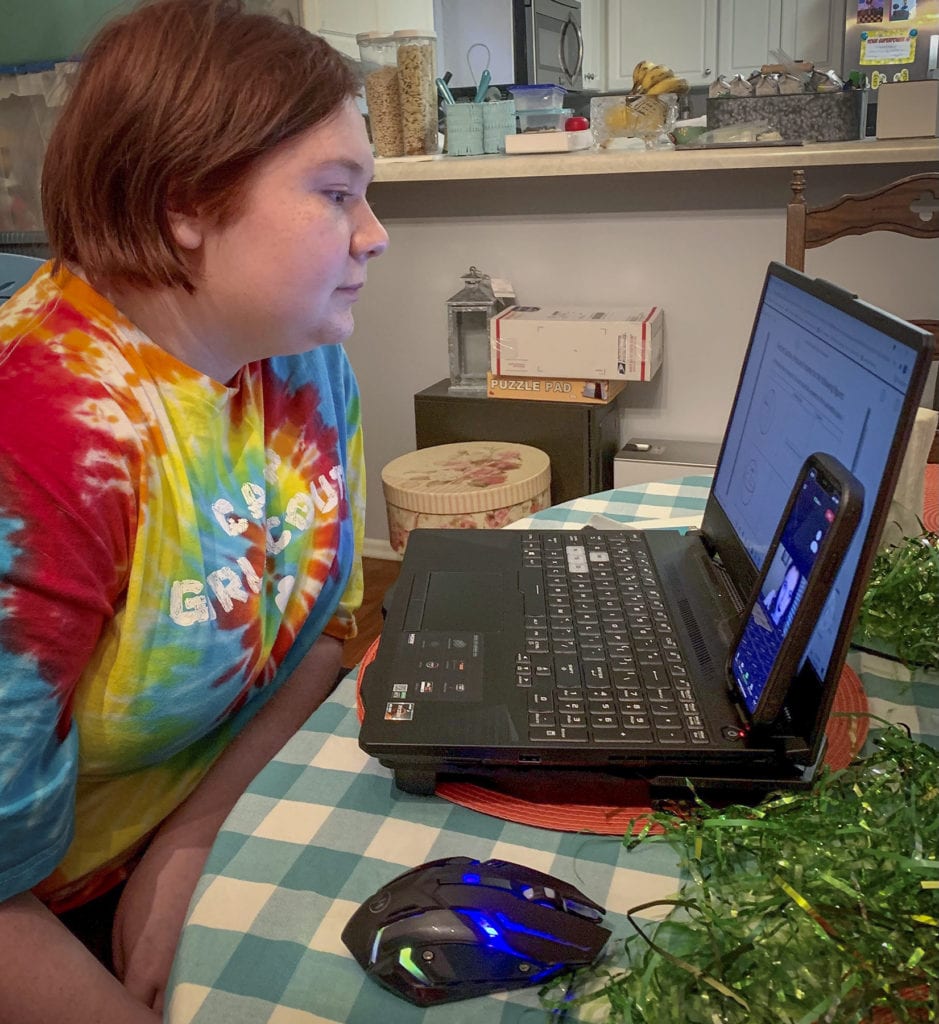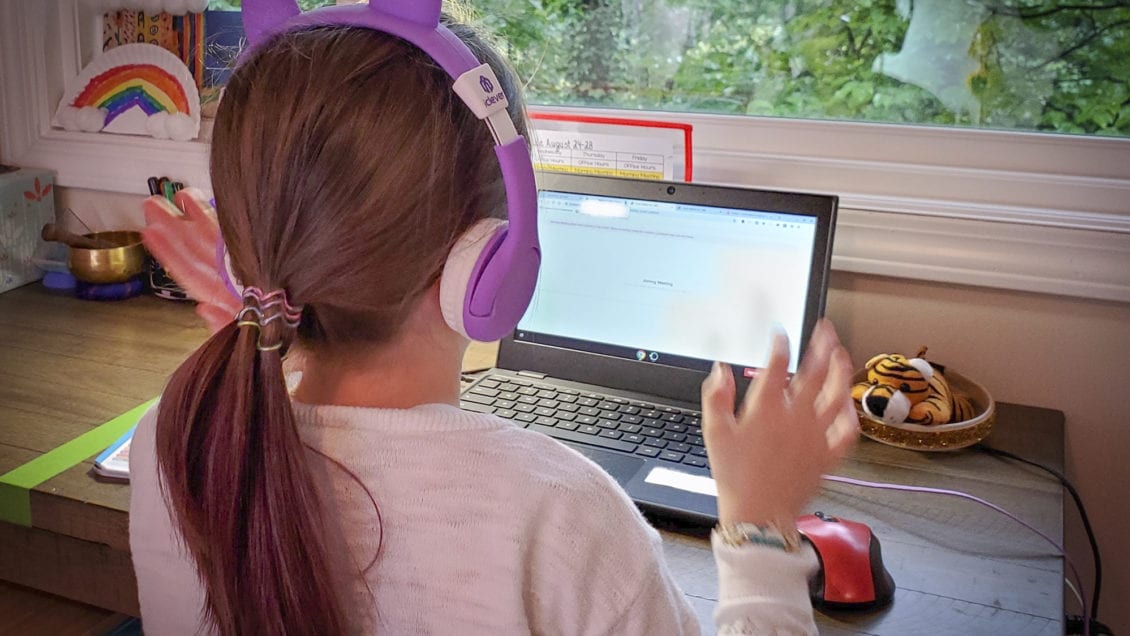When the COVID-19 pandemic broke last year, it didn’t take long to see that some people were being hit harder than others; financially, emotionally and mentally. Caregivers, in particular —for children, the elderly and other dependents — were stretched thin by the pivot to in-home work and learning alongside the challenges associated with uncertainties arising from the pandemic.
An astute group of Clemson faculty and staff noticed this and quickly stood up the Provost’s Caregivers Support Task Force to identify the issues and find solutions to take some weight off the shoulders of their fellow employees who were struggling.
“An early study that surveyed about 4,500 faculty from universities in the United States and Europe showed that the number-one predictor of whether or not you had to adjust significantly was being female and having children of preschool age,” said biology professor Margaret Ptacek, director of TIGERS Advance and member of the Caregivers Support Task Force. “So it became apparent early on in the pandemic that caregivers of young children, who are often women, were really hit hard.”
Soon after the Caregivers Support Task Force was formed in late August 2020, it sent out a survey to collect information about how the University could help caregivers balance responsibilities at home and work in the turned-upside-down world of the pandemic.
“We had over 1,000 University employees respond to that survey,” said Ptacek. “Then we started putting our heads together about what we might offer to address some of these needs.”
They quickly realized employees with school-aged children who were falling behind in their studies could benefit significantly from a tutoring program, and what better place to find tutors than an R1 university. Ptacek recalled a webinar she attended featuring the president of Barnard College, a private liberal arts college in Upstate New York.

“They came up with the idea of hiring federal work-study undergrads to be tutors for school-aged children of their faculty and staff,” said Ptacek. “Many of those jobs went away when the University closed. Think of all the federal work-study students that our University offices employ — there are about 700 of those positions in an average year. Now all those main offices were closed and the staff was working from home.”
The idea led to the formation of the Clemson University Virtual Tutor Corps. Ptacek put together a proposal to hire 30 federal work-study students to be tutors for the children of faculty and staff from the end of January through April.
“It was approved within 10 days of my request,” said Ptacek. “I want to give a lot of thanks to Amy Lawton-Rauh and Provost Jones. The cost was about $8,500, which is not a huge amount, but keep in mind we had just been through furloughs and all the other financial hits the University took because of the pandemic. It was reviewed by leadership and the cost was split between the provost’s office and the president’s office.”
Ptacek said she received 75 applications and hired 28 federal work-study students to be tutors. Also, five graduate students from Clemson’s Black Graduate Student Association and five faculty from the Emeritus College donated their services, giving her 38 tutors to offer to the children of faculty and staff. A total of 72 children received tutoring.
Ptacek noted that the tutors came from every Clemson college, which gave her a wide range of subject-matter tutors.
“Most of our tutors took at least two children,” she said. “The undergrads tutored grade school kids in just about everything. Most of the middle and high school kids were looking for math tutors. I even found a tutor to tutor Mandarin to those students taking Chinese language courses!”
Carla Duncan Brewer, the registration coordinator for the Department of Biological Sciences, was assigned a tutor for her daughter, Beth, a ninth-grader in the South Carolina Virtual Charter School.

“Beth has always been a good student, but she has struggled this year with geometry,” said Brewer. “Dr. Ptacek was able to place us with a graduate student in Mathematical Sciences, Eileen Melville. Eileen has been a big help to Beth. She has worked with our schedule and she has been very patient with Beth. Beth was hospitalized earlier this year, and although she is fine now, she was very far behind in her class work during the third quarter. Eileen spent extra time working with her, very patiently, to help Beth catch up with her school and finish with a strong B for that quarter. This program has been a blessing, and I would love to see it continue. It is one of the best benefits I have found working at Clemson.”
Lawton-Rauh said the Tutoring Corps has been just as beneficial to the undergraduates who were hired as tutors as it was for the faculty and staff who utilized the program.
“It became a professional development experience,” she said. “They contributed as tutors and, in turn, have a high level of engagement; Learning what it means to interact with people remotely, teach students and meeting with a coordinator every week. The Honors College pitched in and provided professional development expertise and time , so it’s been a positive experience.”
As the semester comes to a close, Ptacek is hopeful reading tutors will be available during the summer through Skye Arthur-Banning, an associate professor in the College of Parks, Recreation and Tourism Management who secured a grant from the Christopher and Dana Reeves Foundation to train paralyzed veterans to be reading tutors.
The Tutoring Corps program ends on May 15, but Ptacek said she hopes it can continue next semester.
“I’m willing to spearhead it. I’ve read articles that many of our public-school children are at least a year behind, particularly in math and science. So even though a lot of our schools will be back to face-to-face instruction next fall, I really think another year of the Tutoring Corps would be welcomed.”

